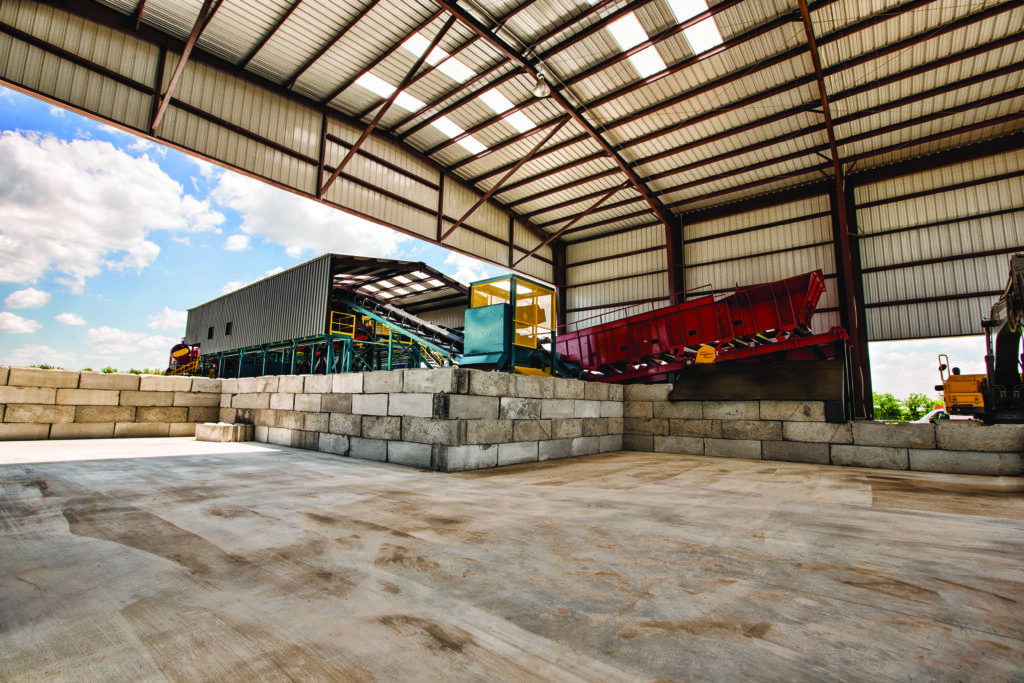Customized Recycling Systems
Custom recycling systems are fully engineered and ready-to-run facilities designed and tailored to meet your specific processing needs. A system integrator, a key player in this process, is responsible for adjusting the system to maximize your material return and return on investment. They handle every stage, from initial design and engineering to equipment supply, installation, startup, and long-term service. Depending on your material mix (MSW, scrap, C&D, etc.), you’ll need different equipment and processing demands. The system integrator ensures that all these components work together seamlessly.
Typically, this is done in one of two ways:
- By a single system integrator who handles every stage, from initial design and engineering to equipment supply, installation, startup, and long-term service.
- Multiple integrators are used, and their equipment is all integrated into one system, likely using numerous different sources for installation, startup, controls engineering, and more.
How Recycling Systems are Customized
Every recycling facility has its own unique requirements depending on what materials are being handled. When designing recycling systems, the equipment chosen should reflect the materials being processed, the facility size, and the expected number of tons processed per hour.
Additionally, consider any future processing challenges your facility may encounter. As you grow, will you need to be able to handle greater capacities? Difficult materials, such as batteries? Future-proofing your line by ensuring it can be upgraded or expanded in the future is crucial when it comes to designing your system.
Benefits of Single-Integrator Customization
Customizing your recycling system is becoming more essential due to increasingly diversified and complex waste streams. In the past, more ‘piecemeal’ systems were fine because we were processing less complicated materials or focused on multi-stream, siloed operations. Now, single integrator systems are more common because they integrate better with one another and they’re more modular for retrofits.
C&D materials, batteries, medical supplies, and more all complicate things when they’re thrown into the mix. This is especially true if your system requires a shredder (such as in some C&D and scrap operations). Designing your recycling system with this in mind, your equipment should be able to thoroughly prepare the waste stream before it reaches the shredder, removing any materials that could cause jams, or worse, damage the shredder.
Potential Downsides of Single-Integrator Customization
While single-integrator systems are generally better, they can have some pitfalls if you aren’t careful. For example, switching to another supplier can be more difficult if your current one isn’t meeting your needs or keeping up with current recycling technology trends. Additionally, if the system integrator goes out of business or discontinues a particular product line, it can be challenging to find replacement parts or support for your system.
To mitigate any of these possibilities, thoroughly research your system integrator. Make sure they’re innovating to keep up with industry trends, provide support for their products, and are clear about how they can solve your processing challenges.
Additional Considerations
Systems with machines from multiple different providers can sometimes cause more issues if not appropriately integrated. Sometimes, you will need to get equipment from more specialized suppliers, such as robotic sorting equipment, optical sorters, or shredders, if the primary equipment provider doesn’t offer them. This is perfectly fine as long as the equipment is adequately integrated and your controls team takes this into account.
A well-implemented system will also take this into account by compensating wth adequate sorting equipment. Separating materials and reducing them down to a more manageable size with equipment like conveyors, screens, magnets, and density separation before they hit the shredder or optical sorter minimizes the strain and wear put on the key equipment.
Regular maintenance on every single machine in the system is crucial to keep it running smoothly for longer. Inspecting for broken components, cracks, material buildup, or anything else that could cause a greater issue down the line is a great way to perform preventative maintenance. Some integrators offer on-site inspections for your system as well. By investing in regular maintenance, you can extend the lifespan of your equipment, reduce the risk of unexpected breakdowns, and ensure that your system operates at peak efficiency.
Custom Systems Built to Last
With GK Systems, you can design and build a custom recycling system that’s fully integrated and managed by one team backed by more than 65 years of experience in the recycling industry. Our extensive experience and expertise in the field will give you the confidence that we can help you develop a customized turnkey recycling system that meets your processing needs. Contact us to get started!
